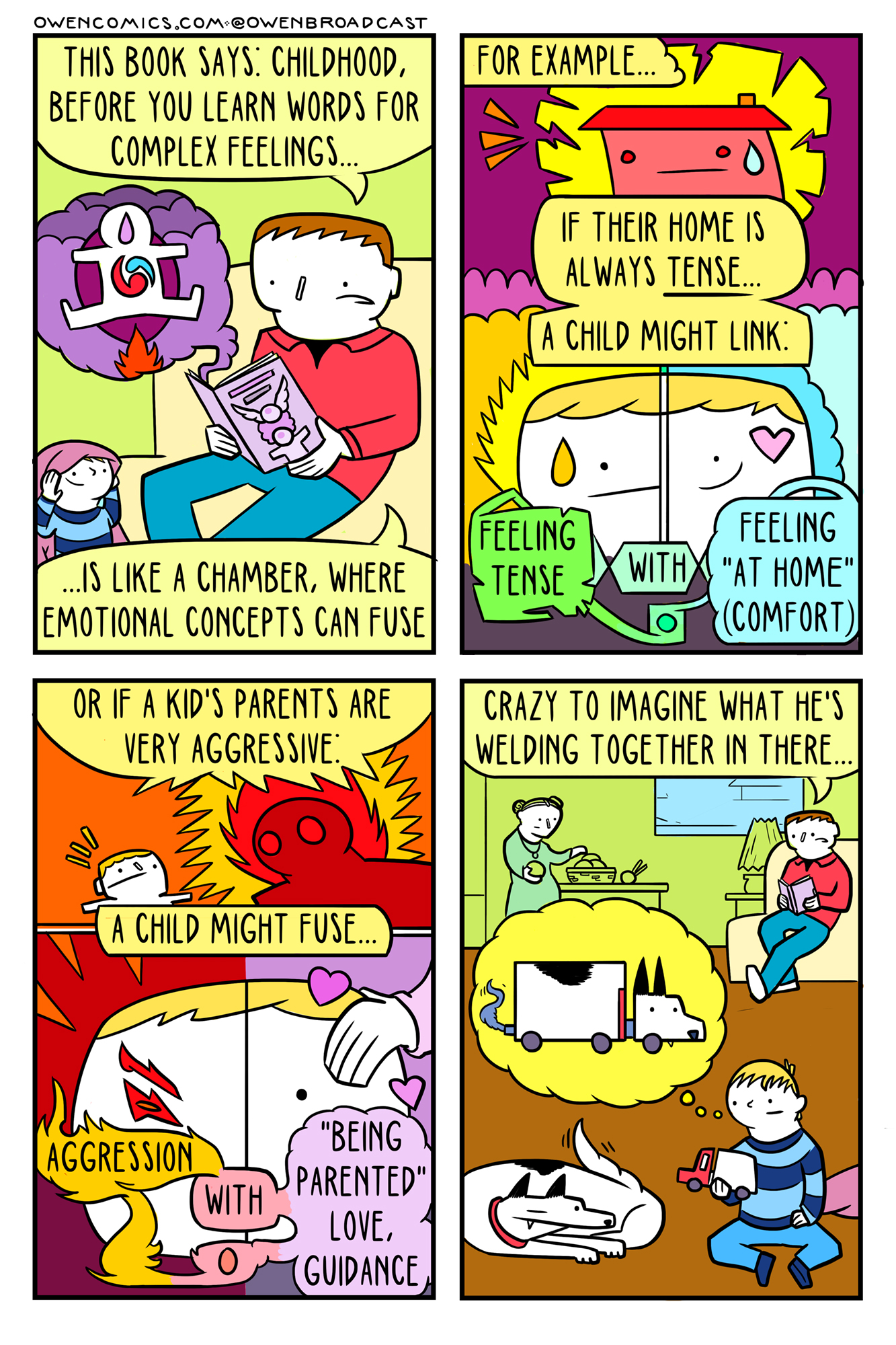I believe it is possible to have common sense “educated” out of you, whether by formal schooling, by one’s culture, or both.
When I was studying literature in college, professors would deride any literary interpretation that smelled of an “essentialist” view of morality, gender, race, or reality. What they meant by this fancy term (which was not a complimentary one, by the way) was that only the uneducated would seriously believe in an essential, unchanging nature to things like man and woman. The enlightened, on the other hand, were supposed to know that nothing—not gender, not race, not morality—has any permanent essence, or at least none that we can know.
Through year-upon-dreary-year of postmodern indoctrination, these otherwise highly intelligent professors had been trained to forget what they once knew: that a man is different from a woman, that up is not down, and that there is a world external to our minds that we can come to know.
Everything now is a matter merely of “your truth” or “my truth,” not the truth. And if we can’t agree on truth, how can we agree on anything else?
Many ills of our world originate from this rejection of the knowability of reality. Transgenderism provides a good example. An argument against transgenderism based on its disconnection from the reality of the unchanging nature of man and woman will be nonsensical to someone who does not believe in a firm reality outside the mind.
If both parties in that conversation cannot acknowledge that there is such a thing as being, and that there are certain determinate ways of being (natures), how can the two ever agree on what it means to be a man or a woman, to have male or female nature?
Perhaps we need to return to square one. It is somewhat idle to talk of convincing a relativist of, for example, the right to life, the sacredness of marriage, or the proper role of government when everyone is not even speaking the same language. How can we persuade someone of a particular truth when they do not believe in the very notion of truth?
I said above that both “education” and one’s cultural influences can seek to deny basic truths, like the existence of a knowable reality. The means by which colleges contribute to this de-education are fairly well known (the toxic brew of postmodernism and neo-Marxism being among the foremost). Education remains a critical battleground.
But a more subtle attack on the belief in reality and absolute truth comes from the flanking maneuver enacted by our cultural atmosphere.
Aristotle taught that all knowledge begins with the senses (though it doesn’t end there, which is the materialist error). We are embodied spirits, and our physical actions and environment profoundly affect our mind and our soul. Culture—with its music, food, art, architecture, and the rest—appeals to and shapes the senses.
If the senses are the building blocks of knowledge, then changes in the sense-environment created by culture will affect our knowing, thinking, and believing—even if in subtle ways we may not be fully aware of. Philosophy shapes culture, of course, but it’s also true that culture shapes philosophy. That is why an artificial culture will tend to promote a philosophy of artificiality, a disbelief in substantive reality.
Literature professor John Senior wrote, “No serious restitution of society can occur without a return to first principles, yes, but before principles we must return to the ordinary reality which feeds the first principles.” Culture, at one time, aided us in experiencing and celebrating that “ordinary reality” by putting us in touch with it and showing us the wonder of it.
A beautiful landscape painting, for example, tends to heighten our sensitivity to the reality and wonder of the woods, while a fall festival reminds us of the pattern of the seasons and our dependance—in a very real way—on the soil and the rains for our continued existence.
It is in experiencing such things of primary creation, first through our senses and cultural rituals, that we come to know to the core of ourselves the reality of being, which is the foundation of all true philosophy.
In his Metaphysics, Aristotle explains that wonder, which derives first from seeing, tasting, and touching what is real, is the beginning of philosophy and, therefore, wisdom:
It is through wonder that men now begin and originally began to philosophize; wondering in the first place at obvious perplexities, and then by gradual progression raising questions about the greater matters too, e.g. about the changes of the moon and of the sun, about the stars and about the origin of the universe.
A raw contact with reality, fostered through culture, can be seen, then, as the seed of good philosophy.
While certainly we still find some of these healthy elements in our culture today, we also find a great deal of artificiality, which, rather than drawing us into a loving embrace of reality, comes between us and the world around us.
Artificiality, though it may not be the root of our problem, certainly isn’t helping, and it has proliferated in the past 150 years. We’ve had artificial money, artificial flavors, artificial turf, artificial lighting, and now artificial intelligence. Is it any surprise that we find it harder and harder to believe in a reality that is not of our own making, a reality that is not mere sensation and self-induced hallucination?
Just as artificial city lights have a way of drowning out the stars at night, a culture of artificiality has a way of drowning out reality.
—
Image credit: Unsplash
3 comments















3 Comments
Daniel
March 22, 2024, 2:44 pmI am reminded of Heidegger’s great charge: we have forgotten the question of the meaning of being!
REPLYAlexander Scipio
March 22, 2024, 3:40 pmIf we could learn about our world directly and via experience and reality, why would we need do many mediocre colleges, universities & professors, to say nothing of “experts?”
REPLYMatt
March 28, 2024, 9:21 amFor the few of us out here who still believe in God and the natural order of things, the rejection of objective reality is not just an offense to nature or to our sensibilities, but to God himself. As a student of Aristotle and Aquinas, I have become quite certain the world is on a path to perdition. There is a great embrace of the devil and his works and his empty promises. Furthermore, the development the Internet and the development of mobile devices has led to the easy spread of this fallacious, demonic artificiality. Short of a miracle, there seems to be nothing to stop the train of relativism from crashing into the canyon below.
REPLY